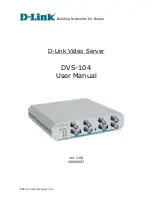
Note for the battery symbol (bottom symbol)
This symbol might be used in combination with a chemical symbol. In this case it
complies with the requirement set by the Directive for the chemical involved.
For users in New Zealand only
•
This equipment shall not be set to make automatic calls to the Telecom ’111’ Emergency Service.
•
The grant of a Telepermit for any item of terminal equipment indicates only that Telecom has accepted
that the item complies with minimum conditions for connection to its network. It indicates no endorsement
of the product by Telecom, nor does it provide any sort of warranty. Above all, it provides no assurance
that any item will work correctly in all respects with another item of Telepermitted equipment of a different
make or model, nor does it imply that any product is compatible with all of Telecom’s network services.
•
APPLICABLE ONLY TO TELECOM CUSTOMERS WHO HAVE AUTOMATIC ACCESS TO OTHER
CARRIERS FOR TOLL CALLS
When calling back a number from the Caller ID list, all numbers prefixed with "0 + AREA CODE" will be
automatically forwarded to your toll carrier. This includes numbers in your local calling area. The zero +
area code should either be removed when calling back local numbers, or check with your toll carrier that a
charge will not be levied.
•
All persons using this device for recording telephone conversations shall comply with New Zealand law.
This requires that at least one party to the conversation is to be aware that it is being recorded. In
addition, the principles enumerated in the Privacy Act 1993 shall be complied with in respect to the nature
of the personal information collected, the purpose for its collection, how it is used, and what is disclosed
to any other party.
•
The SLT ports are not specifically designed for 3-wire-connected equipment. 3-wire-connected equipment
might not respond to incoming ringing when attached to these ports.
1.1.4 Data Security
In order to use the NSX server safely and correctly, the Security Requirements below must be observed.
Failure to do so may result in:
•
Loss, leakage, falsification or theft of user information.
•
Illegal use of the NSX server by a third party.
•
Interference or suspension of service caused by a third party.
What is User Information?
User Information is defined as:
1.
Information stored on the Storage Memory Card:
System data, error data and activation key files.
2.
Information sent from the NSX server to a PC or a USB memory device:
System data, sound files for MOH (Music on Hold) and OGM (Outgoing Messages), and activation key
files.
Requirements
1.
The Storage Memory Card contains software for all the processes of the NSX server and all the
customer data. Therefore, do not allow unauthorised access to prevent data leakage.
2.
Always make backups of data stored on the Storage Memory Card and/or perform regular system data
backups to a USB memory device or a NAS. For details, consult your dealer.
3.
To prevent illegal access from the Internet, activate a Firewall.
1.1.4 Data Security
16
Operating Manual
Summary of Contents for KX-NSX1000
Page 10: ...Table of Contents 10 Operating Manual ...
Page 203: ...Table 1 Standard mode 1 14 2 Using the Directories Operating Manual 203 ...
Page 204: ...Table 1 Standard mode for RU model 1 14 2 Using the Directories 204 Operating Manual ...
Page 205: ...Table 2 Option mode 1 14 2 Using the Directories Operating Manual 205 ...
Page 206: ...Table 2 Option mode for CE model 1 14 2 Using the Directories 206 Operating Manual ...
Page 207: ...Table 2 Option mode for GR model 1 14 2 Using the Directories Operating Manual 207 ...
Page 250: ...2 2 2 Message Manager Features 250 Operating Manual ...
Page 288: ...4 1 3 Supervisory Monitor ACD Control 288 Operating Manual ...
Page 314: ...Note 314 Operating Manual ...
















































